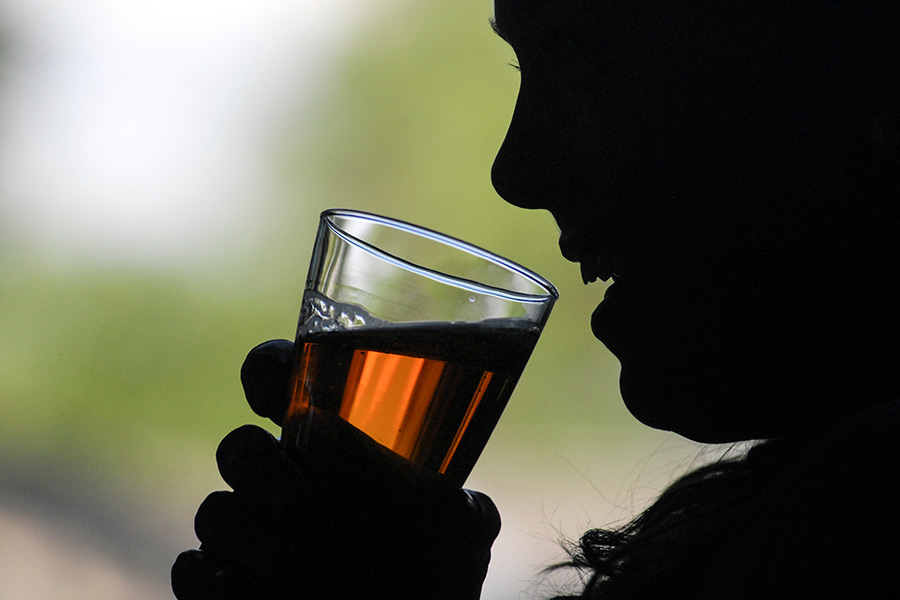Separate bills are surfacing in Helena that could impact the state’s alcohol industry, including one that would allow breweries and bars to own multiple types of licenses.
Last week a new bill was announced that would increase the threshold for breweries hoping to maintain a taproom while allowing both breweries and bars to hold separate licenses, which is currently prohibited.
Rep. Pat Noonan, D-Anaconda, is sponsoring the “Montana Brewers Act,” which emerged from an upstart coalition of industry members that met throughout the past two years to patch up relations and find common ground after a big blowup in the 2013 legislative session. A coalition of industry groups, including the Montana Tavern Association, the Montana Brewers Association, the Montana Restaurant Association and the Gaming Industry Association, have come out in support of Noonan’s bill.
Another industry player — the Montana Beer and Wine Distributors Association — remains opposed alongside select breweries and taverns that disagree with the so-called license stacking.
The distributors association announced its separation from the coalition in December because of the potential license stacking, which the association has said would disrupt the current system and unfairly favor establishments that already have multiple licenses.
Instead, the distributors association has voiced its support for a separate bill that would include part of the “Brewers Act” proposal but not the license stacking.
Rep. David “Doc” Moore, R-Missoula, is crafting legislation that would simply increase the threshold for breweries hoping to operate a taproom to 60,000 barrels annually.
Both bills are expected to be formally introduced during the legislative session this week.
The two bills agree on the proposal involving brewery limits.
Currently, breweries that sell over 10,000 barrels annually cannot charge for drinks in a taproom.
Under both Noonan and Moore’s bills, the threshold would increase to 60,000 barrels, allowing those with sample rooms to grow beyond 10,000 barrels without forfeiting the ability to sell their beer on premise.
Noonan’s bill also states that brewers exceeding 10,000 barrels would be restricted from selling more than 500 barrels annually on premise.
The main difference between the two bills involves the stacking proposal.
Noonan’s bill seeks to allow business owners with a liquor or beer license to purchase a brewing license, or vice versa. Co-located license holders would be limited to holding only two additional retail licenses.
As it stands now, an individual can only own one type of alcohol license in Montana, although some business owners have found ways to work around the regulations by establishing separate businesses under different owners, but all working essentially under the same roof.
The list of breweries across the state that have found a legal way to circumvent the regulations include Tamarack Brewing Company in Lakeside, Great Northern Brewing Company in Whitefish, Red Lodge Ales, Lewis and Clark Brewing Company in Helena and KettleHouse Brewing Company in Missoula.
Proponents of the bill say it would streamline business operations for establishments and provide another opportunity to succeed without being hamstrung by outsized regulations.
“Some of our taverns and restaurants would like the opportunity to serve their customers a beer that was crafted in-house and to transition their businesses more toward the brewpub model,” stated Mike Hope President of the Montana Tavern Association. “This compromise will allow them to do just that.”
Opponents of the bill say the current system is already providing important checks and balances and by altering the law, businesses, whether it’s a brewery or bar, could become so-called vertical monopolies that could dominate the market with an unfair advantage. Other businesses that wanted to compete with those that owned two licenses would have to also buy a license from the state’s quota system, which would further entrench a controversial issue, according to those opposed.
“Doc Moore’s bill does everything Noonan’s does and less. It doesn’t force brewers to be part of the quota system,” said Brian Clark, the general manager of Fun Beverage, which distributes the majority of alcohol in Northwest Montana.
Josh Townsley, president of the Montana Brewers Association and owner of Tamarack Brewing Co., said Noonan’s bill would not cause a significant disruption in the system.
“This bill will not change the fact that 97 percent of all beer sold in Montana goes through the distributors, and only 3 percent is sold directly by our brewers,” he stated. “To the contrary, it is likely that passage of this bill will send more beer through the distribution tier.”
A separate bill is being crafted that could remove beer and wine licenses from the state’s quota system and restrict them similarly as specialized licenses issued by the state’s Department of Revenue.
